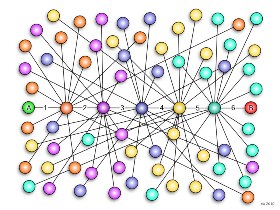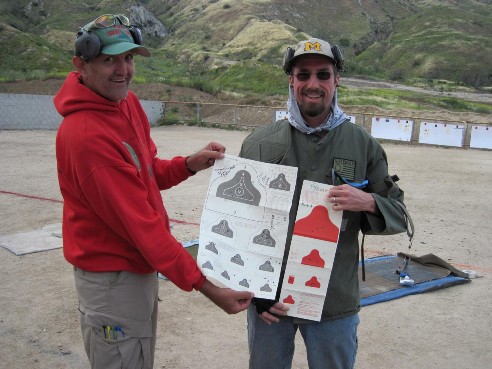The discovery of Dr. Titzer is that Babies can:
- Start learning to read as early as 3 months old.
- Learn to read easier and faster than 1st graders.
- Learn multiple languages effortlessly in a window that closes down rapidly after the age of four.
Dr. Titzer’s contribution has been in publicizing these discoveries and putting together the materials for other parents to duplicate the stunning results with his daughters.
The program is simple. After five days on it our 16-month-old is learning . . . .something. Then again it’s hard to imagine any activity we could do together that would not lead to him learning more rapidly. Babies are expert learners and spending time with parents is a super-stimulant. That’s why I think main ingredient for the success of the program is also its weakest link: Parents. Their ability to work the program with their baby every day, twice a day.
Each of two daily sessions last 30 minutes each. To get these two sessions in with their kids parents will need to . . .
Teach Instead of Work or Rest
If one parent is home with the baby during the day then the first session will be easier to do. If not, there are three options:
- Teach the first session before work.
- Teach the first session at lunch.
- Arrange for your daycare giver to teach the first session.
I say teach even though the instructions say you can just pop the DVD in and let the baby watch. Although our son is glued to the presentation for the first 15-minutes he needs some encouragement to finish. He’s also excited to go through the picture cards after the video and that’s parent and baby time.
I suppose you could get your daycare giver to pop a DVD in for the first session. But, you’d also want them to follow up with the cards and picture book, afterwards.
After work one of the parents will need to teach the 2nd session while the baby is alert and interested and before they’re ready for bed. So, just when parents are ready to plop down and rest after work it will be time for the 2nd session.
The sessions are relaxing and fun. The regularity, not the teaching, is the challenge. Excitement has taken us through the first week. Now, our discipline of keeping to the twice-a-day sessions will be the main factor in determining our son’s progress.
The Program May Work If the Parents Do
The people involved are more predictive of success than the method used.
Years ago, five friends and I held a “bodyfat” contest. The goal was to see who could lose the most bodyfat in three months each using their own diet and exercise program. For three months we each worked out three times a week and used a different popular diet program: Atkins, The Zone, etc..
The results? The guys who were motivated made their program work. They could have used any program and succeeded with it. And, the unmotivated guys wouldn’t have been saved by a better program.
The success of the “Your Baby Can Read” program will be determined by the parents’ work. Babies are thrilled to learn and interact and play. If the parents can manage the discipline of the regular sessions then this program will probably work.
Parent & Baby Time Equals Success
If parents can manage the twice-a-day feat of teaching their babies for an hour a day then they’ve made a breakthrough that far exceeds the results of any program. The real success is the increased time you spend with your kids. Is there anything a child won’t learn faster and better with time and attention from their parents? If not then why stop at reading?
Sure enough, there are other programs for teaching your baby Colors, Patters, Numbers, Shapes, Prepositions, Four additional languages and a more advanced reading program.
Is Faster and Better Optimal?
Whether faster and better is Optimal is a different question. For most subjects the answer is probably yes. However, big steps forward come with costs and considerations. When it comes to reading at an early age Bill Sardi points out the link between reading and myopia that occurs with people and cultures focused on literacy.
Advanced Problems
Whoever discovers treasure has to figure out where to put it and how to use it. If TV and video games were replaced with Shakespeare would all children be myopic? Every advance leads to advanced problems. Something that looks like a step forward may not be.
The ability to read is a mandatory skill. Reading earlier advances the problems of eye care sooner into a child’s life. Bill Sardi recommends vitamin C & D, calcium, copper, sunlight, holding books more than 12 inches from the eye, and focusing on distant objects. We’re lucky to have Bill’s advice at the same time we’re teaching our son to read.
What about issues that would stem from other forms of child advancement: Skipping grades, advanced homeschooling, socialization, early graduation? Dr. Titzer refers to some of these issues as well as the achievement gap between early readers and later readers increasing over time (a.k.a. the “Mathew Effect” where the rich get richer and the poor get poorer).
Titzer says grade skipping, socialization and achievement gaps have been easily dealt with in his daughters progress. I would imagine the problems of achievement are tiny compared with non-achievement. As one of my favorite bumper stickers says, “If you think education is expensive, try ignorance”.
Early Training for an Optimal Life
This program is our first baby step towards homeschooling. If it leads to some kind of gap between our son and his peers then I’ll consider it early training for his Optimal Life.
Even with adults the earlier one starts on a path towards optimal the more unmeasureable their life is against traditional yardsticks. We live in a world that measures the multiple dimensions of intelligence with an integer. Sorry, but after you tell me what your IQ is I’ll still know very little about your intelligence.
I must have read that, somewhere.
Copyright © 2010 by Terence Gillespie. Permission to reprint in whole or in part is gladly granted, provided full credit and a live link are given to McGillespie.com












